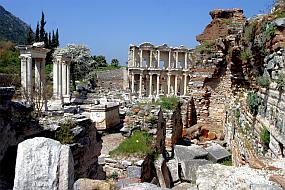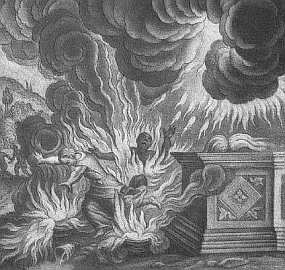It’s the early a.m. here and quiet as a tomb. That silence lends opportunity to think.
I’m pondering the state of the American Church. But then, I never stop.
We live in a world coming apart at the seams. Some say that’s not the case, but as I see it, the deterioration is clear. I wonder regularly how it is that all sense is missing from whichever brouhaha holds our attention this day.
It may not be much on the grander scale, but the fiasco surrounding last week’s notorious conference makes it clear genuine Christians must pray this:
Lord, purge Your Church.
If the Church in America is to have any influence at all on the larger culture and society of the United States, the dross must be removed.
Pray also that you are not the dross.
At this point in 2013, I’m fully convinced that the American Church is thinking too far ahead of itself if it continues to believe it can have such an influence. While the gates of hell cannot hold against the Church as a whole, no assurance is given for any one branch:
Ephesus in ruins
“To the angel of the church in Ephesus write: ‘The words of him who holds the seven stars in his right hand, who walks among the seven golden lampstands. “‘I know your works, your toil and your patient endurance, and how you cannot bear with those who are evil, but have tested those who call themselves apostles and are not, and found them to be false. I know you are enduring patiently and bearing up for my name’s sake, and you have not grown weary. But I have this against you, that you have abandoned the love you had at first. Remember therefore from where you have fallen; repent, and do the works you did at first. If not, I will come to you and remove your lampstand from its place, unless you repent.
—Revelation 2:1-5 ESV
We could point to the vitality of the Ephesian Church and its contemporary influence on the world—if it were still around. But the Lord removed that Church’s lampstand and the light went out.
The American Church is at the lampstand-removal phase, if it hasn’t happened already. An opportunity to repent may still exist, but I wonder if it must come down to something more drastic than repentance.
Lord, purge Your Church.


 The supposed reason for the Strange Fire Conference of last week was to address and correct “charismania”—out-of-control or flat-out bogus gifts and the people who express them. The authority question arises when the correctors included no charismatics. So much for cleaning one’s own house first or sticking to the log in one’s own eye before finding the speck in your brother’s.
The supposed reason for the Strange Fire Conference of last week was to address and correct “charismania”—out-of-control or flat-out bogus gifts and the people who express them. The authority question arises when the correctors included no charismatics. So much for cleaning one’s own house first or sticking to the log in one’s own eye before finding the speck in your brother’s.